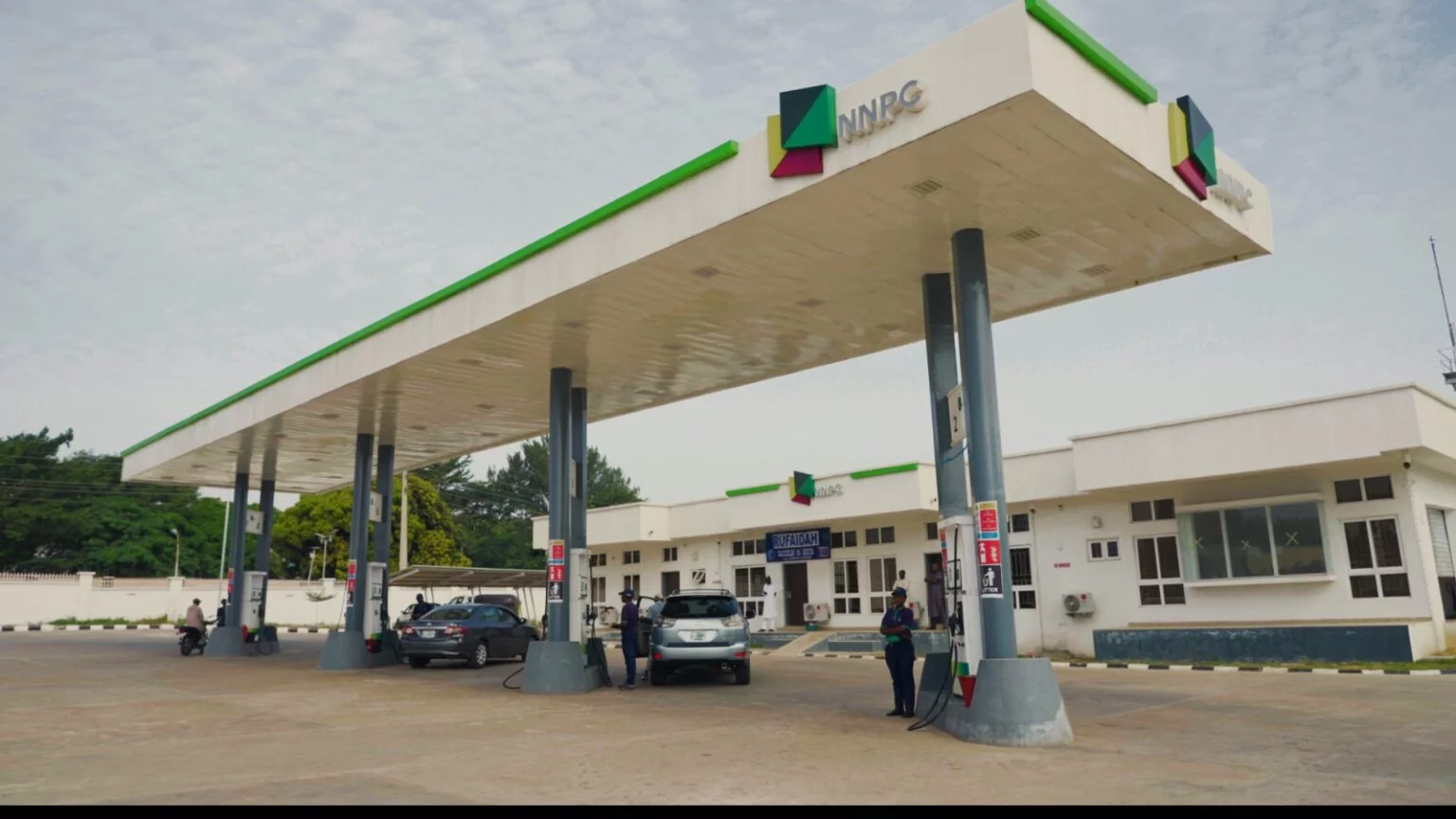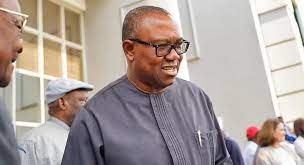FEATURES
Matters Arising as Presidential Election Petition Court Begins Proper Hearing

With the pre-hearing stage over, legal fireworks kicked off at the Presidential Election Petition Court, (PEPC) on May 30.
The court held its inaugural session on May 8, the ritual that takes place to enable the bar and bench to agree on some ground rules before the actual hearing of petitions commences.
The PEPC has 180 days to hear and determine the petitions of Mr Peter Obi and the Labour Party (LP), Alhaji Abubakar Atiku and the Peoples Democratic Party, (PDP) and the petition of the Allied Peoples Movement, (APM).
According to Section 285 (5) to (7) of the 1999 Constitution as amended: “An election petition shall be filed within 21 days after the date of the declaration of result of the elections.
“An election tribunal shall deliver its judgment in writing within 180 days from the date of the filing of the petition.
“An appeal from a decision of an election tribunal or Court of Appeal in an election matter shall be heard and disposed of within 60 days from the date of the delivery of the tribunal or Court of Appeal’’.
They are in court challenging the outcome of Feb. 25 Presidential Election which produced President Bola Tinubu and his vice Kashim Shettima.
Proceedings started at the court after the pre-hearing session with the Labour Party calling its first, out of 50 witnesses.
One of the witnesses, Mr Lawrence Nwakaeti, led in evidence by Mr Jubril Okutepa, a Senior Advocate of Nigeria, a counsel from the petitioners legal team tendered documents including a United States District Court judgment.
The judgment allegedly indicted President Bola Tinubu and ordered his forfeiture of 460,000 dollars in a drug-related offence.
Under cross examination by counsel to Tinubu, Mr Wole Olanipekun, a Senior Advocate of Nigeria, the witness admitted that the judgment was not registered in Nigeria.
The witness told the court that he had read the judgment in its entirety and would be surprised if no mention was made of 460,000 dollars forfeiture in it.
While also cross examining the witness, counsel to the All Progressives Congress, (APC), Mr Lateef Fagbemi, a Senior Advocate of Nigeria, sought to know if the document had the certification of any police officer in the United States.
“Do you have a certificate given under the hand of a police officer in the United States where the alleged conviction took place.
“Are you aware of a formal clearance report dated Feb. 4, 2003 issued under the legal attache’ of the United States embassy in respect of the alleged indictment and forfeiture’’, he asked.
The witness told the court that he had no certificate from the police and that he was not aware of any such report.
The witness further told the court that he did not have the charges against Tinubu because there were no charges since the indictment was from a civil forfeiture proceeding.
Mr Kemi Pinhero, a Senior Advocate of Nigeria, counsel to the Independent National Electoral Commission sought to present the witness as a trouble maker saying he was involved in some controversy over local elections in his state.
This however, attracted vehement objections from the petitioners counsel as he said the issue of the local election was not before the court.
For Obi and the Labour Party on day one, it was just one witness, 49 more to go.
If supporters of Obi and the LP had high expectations for hearing of the petition on day two of the proper hearing stage, they may have been a somehow disappointed.
At the resumed hearing of the petition on May 31, counsel to the petitioners, Prof. Awa Kalu, another Senior Advocate of Nigeria, told the court that he was constrained to ask for an adjournment due to unforeseen circumstances.
“My lords, our plan was to continue our case but we had an unexpected development at the secretariat.
“The unexpected development has to do with the illness of two of our key staff for which reason I am constrained to pray for an adjournment until tomorrow,’’ he said.
Justice Tsammani granted the request, especially as there was no objection from counsel to all the respondents.
Obi and the Labour Party had told the PEPC that they would need three weeks to prove their case and as at May 31, the petitioners had 19 days to go.
The court was again forced to step down hearing in their petition due to poor scheduling of documents they sought to tender in evidence.
There was some confusion as a lot of discrepancies were noticed as Mr Emeka Okpoko, a Senior Advocate of Nigeria, attempted to tender documents from 23 Local Government Areas of Benue.
All efforts to reconcile the discrepancies proved abortive forcing the judges to rise for about 15 minutes to allow the petitioners rectify the confusion.
The judges didn’t seem pleased when they returned after the stand down and things still hadn’t been sorted out.
At this stage, Tsammani told the petitioners to take an adjournment and sort their documents out before returning to court.
“What we have done today is a waste of time. The poor way you have arranged the documents will cause confusion both for you and the court Justice Misitura Bolaji-Yusuf said in frustration.
Kalu, however, prayed the court to allow his team tender the documents they had rather than take an adjournment since they had already lost one day and this was granted.
The petitioners proceeded to tender certified true copies of electoral documents obtained from INEC in six out of the 18 states whose results they were challenging.
The documents were mainly Forms EC8A, which are election results from polling units.
The documents were admitted by the court though all the respondents objected to them being admitted in evidence.
Atiku and PDP on the other hand, appeared to have a better grip of things at the court.
This may not be unrelated to the fact that they are not strangers to the election petition court.
Atiku along with the party opened their case at the court on May 30 by first tendering documents to support their petition.
One of such documents tendered by counsel to the petitioners, Mr Eyitayo Jegede, SAN was Form EC8E which is the final declaration of winners result.
Jegede also tendered the Bimodal Voters Accreditation Systems Machines, (BVAS) report from all the 36 states including the Federal Capital Territory, (FCT).
He also tendered INEC certified documents in respect of number of registered voters as well as number of Permanent Voter Cards, (PVC)s collected in all the 36 states including the FCT.
Again, all the respondents objected to the admission of some of them in evidence.
The Chairman of the Court, Justice Haruna Tsammani, however, admitted the documents in evidence.
The petitioners called their first witness, retired Captain Joe Agada, who was led in evidence by Jegede.
Agada told the court that he was forced to sign the result sheet of the presidential election.
He alleged that ballot papers and result sheets were manipulated by compromised electoral officers in collusion with agents of other political parties.
Under cross examination, the witness said that he had given evidence for Atiku in 2019.
PDP’s second witness, Mr Solarin Adekunle, who said he was the Ogun Collation Officer also told the court that he refused to sign the collated results in protest against electoral malpractices.
The petitioner’s third witness, Rep. Uzoma Abonta, told the court that the election should be nullified on the grounds that there were so many irregularities, discrepancies and noncompliance with rules of the Electoral Act.
Atiku and the PDP have called six witnesses out of 100 witnesses they said they have.
Allied Peoples Party, (APM) are not directly challenging the election of Tinubu and Shettima but challenging the issue of ‘’place holder’’.
To this effect, hearing of the party’s petition has been stalled due to a judgment of the Supreme Court on the issue of place holder.
At the resumed hearing of the petition on May 30, Olanipekun counsel to Tinubu told the court that the petition challenging his client’s declaration as president on grounds of place holder had been resolved by the Supreme Court.
Olanipekun said that a judgment of the apex court of May 26 delivered in a suit instituted by the PDP marked SC/CV/501/2023 against the APC on similar grounds had taken care of the issue of place holder.
Counsel to the APM, Mr Yakubu Maikasuwa, SAN told the court that they had been unable to get a copy of the judgment.
“I therefore apply for an adjournment as we are doing all we can to get the judgment so we can take a position on the status of the petition.”
All the respondents in the matter did not oppose the application for an adjournment.
Hearing of the petition has been adjourned until June 9 to enable the lawyers obtain the May 26 judgment of the Supreme Court.
Concerns have been raised by political analysts as well as the petitioners as to why INEC is rejecting its own documents.
Although Pinhero, INEC’s counsel hinted that it was because the documents were being smuggled into the petition, he refused to explain further when asked by newsmen.
The clock is ticking as supporters of all the petitioners as well as those of the respondents eagerly await the outcome of the PEPC. NAN

NNPCL’s New Culture of Transparency, Discipline Strengthens Financial Performance
By Enam Obiosio
The Nigerian National Petroleum Company Limited (NNPCL) is recording stronger financial and operational outcomes as its new culture of transparency, accountability, and capital discipline continues to take hold.
This shift is being reinforced by the company’s decision to publish audited financial statements, hold earnings calls, and open its books to independent analysts.
One of the analysts who reviewed the 2024 results, former Chief Financial Officer and Chairman of M.E Consulting Limited, Mr. Victor Eromosele, provided an independent breakdown that is shaping public understanding of the company’s progress.
In a media chat, Mr. Eromosele explained that he converted the N45.1 trillion revenue and N5.4 trillion profit into dollars to ensure comparability given the recent movement in the naira.
“The first thing I did was to convert it to the United States dollars because we all know what has happened to the naira recently,” he said.
“If you look at it in dollars you would find out that the top line instead of N4.5 trillion is actually 31.1 billion dollars. The bottom line instead of N5.4 trillion is actually 3.7 billion dollars.”
His analysis placed NNPCL beside global peers such as Chevron and ENI. While Chevron posted 193 billion dollars and ENI 198.7 billion dollars in revenue, NNPCL’s strength emerged in its efficiency.
“If you compared the bottom line with that of the top line which is the margin, you would find a situation where NNPCL for example is at 11.8 percent, while ENI is at six percent and Chevron is at nine percent,” he noted.
“Looking at the figures, it shows NNPCL did better.”
He also highlighted 56 percent asset growth and a 28 percent return on capital employed, up from 23 percent the previous year; metrics he described as healthy and consistent with investment grade performance.
These indicators reflect the broader reforms under the Petroleum Industry Act, including the shift from a government revenue collector to a commercially structured energy company that pays taxes, royalties, and dividends clearly and independently.
The company now publishes IFRS-compliant audited accounts, reinforcing visibility and external validation.
According to Mr. Eromosele, once the numbers are assessed on a stable global baseline, “one can say NNPCL actually did well.”
NNPCL continues to strengthen transparency, operational discipline, and global competitiveness in line with its long-term transformation agenda.
FEATURES
Victor Okoli: The Young Nigerian Tech Founder Building Digital Bridge Between Africa and America

Victor Chukwunonso Okoli, founder of Vnox Technology Inc. (USA) and Vnox Limited (Nigeria), is steadily emerging as one of the most promising new voices in global travel-tech. His mission is clear: bridge the technological gap between Africa and the United States, redefine global travel systems, and empower a new generation of skilled youths through innovation-driven opportunities.
In a statement issued in Onitsha, Anambra State, by Vnox Limited (Nigeria), the company emphasized Okoli’s growing influence as a Nigerian international graduate student contributing meaningfully to U.
S. innovation. His rising travel-technology platform, FlyVnox, currently valued at an estimated $1.7 million, is positioning itself as a competitive player in the global travel ecosystem.Okoli explained that Vnox Technology was founded to “train, empower more youths, create global employment opportunities, and drive business growth through our coming B2B portal inside the FlyVnox app.” The platform’s new B2B system aims to support travel agencies, entrepreneurs, and businesses across Africa and the diaspora—giving them access to modern tools, previously inaccessible technologies, and global opportunities.
Several young men and women are already employed under the expanding Vnox group, with more expected to join as the brand grows internationally.
Born and raised in Eastern Nigeria, Okoli’s early life exposed him to the realities and frustrations faced by international travelers and diaspora communities. After moving to the United States for graduate studies, he transformed those experiences into a bold technological vision—building systems that connect continents and create seamless mobility for users worldwide.
At the center of that vision is the FlyVnox app, a modern airline-ticketing platform built with global users in mind. Combining American engineering precision with African mobility realities, FlyVnox offers international flight search, multi-currency support, secure payments, transparent pricing, and a clean, intuitive interface.
Beyond FlyVnox, Okoli has built a growing tech ecosystem under Vnox Technology Inc., which oversees several innovative ventures, including: Vnox TravelTech Solutions LLC (FlyVnox App), VnoxPay (fintech), VnoxShop / Zyrlia (e-commerce)
VnoxID / Nexora (digital identity and smart business card solutions)
Vnox Limited (Nigeria) anchors African operations, media services, and talent development—ensuring the brand remains rooted in its home continent even as it grows globally.
Okoli’s work has broad significance for both Africa and the United States. He represents the powerful impact of immigrant entrepreneurship on global competitiveness—creating new jobs, driving innovation, strengthening U.S.–Africa commercial ties, and contributing to the development of practical, scalable technologies.
The statement concludes that Vnox Technology is a brand to watch. As FlyVnox gains international traction and the Vnox group expands its footprint, Victor Okoli stands as a symbol of a rising generation: African-born, globally minded, and building technologies that connect and serve the world.
FEATURES
Governor Sule: Driving Economic Reforms from Policy to People in Nasarawa State

From Leo Zwanke, Lafia
In Nigeria’s evolving governance, few leaders have gained as much recognition for reform-driven innovation at the subnational level as Governor Abdullahi Sule of Nasarawa State. From fiscal prudence to industrialisation, agricultural transformation to human capital development, the engineer-turned-technocrat has steadily positioned Nasarawa as a model for how subnational governments can translate macroeconomic reforms into tangible benefits for their citizens.
At the recent Nigeria Development Update (NDU), organised by the World Bank in Abuja with the theme “From Policy to People: Bringing the Reform Gains Home,” Governor Sule was a panellist alongside national and international development leaders.
He was introduced as a governor whose economic insight and governance style exemplify how reform implementation at the grassroots can sustain the federal government’s policy direction.“Governor Sule represents the bridge between Nigeria’s macroeconomic reforms and how these policies are domesticated at the state level,” said Shubham Chaudhuri, the World Bank Country Director for Nigeria. “He’s not only talking about reforms; he is implementing them in ways that citizens can feel.”
Before venturing into politics, Abdullahi Sule built a career in engineering, energy, and industry—serving as Managing Director of Dangote Sugar Refinery and leading other private sector initiatives. His private sector exposure, as many observers note, shaped his pragmatic approach to governance.
“The Governor came into office with a technocrat’s mind,” noted Dr. Ahmed Mohammed, an economist and lecturer at Nasarawa State University, Keffi. “He understands that policy documents mean little unless they are converted into livelihood gains.”
That philosophy—bridging policy with the people—is evident across his governance initiatives, aligning seamlessly with the World Bank’s recent development theme.
Agriculture remains Nasarawa’s economic backbone, engaging over 70 percent of its population. Governor Sule’s administration has revitalised the sector through targeted mechanisation, input distribution, and market linkage interventions.
Through partnerships with the African Development Bank (AfDB) and the World Bank’s Agro-Climatic Resilience in Semi-Arid Landscapes (ACReSAL) project, the state has distributed modern tractors, improved seedlings, and irrigation facilities to thousands of farmers.
In Yamaltu Deba, a community in Awe Local Government Area, farmer Mallam Abdullahi Umar explained how the tractorisation scheme has transformed their operations.
“Before, we used hoes and cutlasses. It took us two weeks to plough a hectare. Now, with tractors, we do that in one day. Our yields have doubled,” he said proudly.
Governor Sule himself often emphasises the need for “commercially viable farming” and “agriculture as a business, not a subsistence activity.” His administration has created a framework for farmer clusters, linking smallholder producers with large-scale processors, thereby addressing one of Nigeria’s major agricultural bottlenecks—post-harvest loss.
These interventions are not isolated. They feed into the national agenda of improving food security, generating rural employment, and reducing inflation. In Nasarawa, farmers are reporting higher incomes and expanded market access, a reflection of the governor’s commitment to inclusive growth.
Often called the “Home of Solid Minerals,” Nasarawa State is richly endowed with tin, lithium, barite, and other minerals. Yet, for decades, the sector remained largely informal, with little contribution to state revenue.
Governor Sule has changed that narrative through policy reforms that encourage private sector participation and responsible mining. Under his administration, Nasarawa has developed a solid minerals development policy, created a one-stop investment office, and attracted both domestic and foreign investors.
Earlier this year, the governor led an investment mission to India, where he met with industrial leaders and promoted opportunities in Nasarawa’s mining, energy, and agricultural value chains. The result was a flurry of interest from companies seeking to establish operations in the state.
“Governor Sule’s investment drives are opening Nasarawa to the world,” said Mr. Nabil Saleh, a consultant in mining development. “For the first time, there’s a clear structure and transparency around mining licences, community agreements, and environmental safeguards.”
In Karu and Keffi, local youths who previously relied on artisanal mining now participate in formalised mining cooperatives supported by state-led training programmes. This not only ensures environmental safety but also helps the state retain a greater share of mining revenue.
Additionally, Governor Sule’s administration has set up an Industrial Development Plan anchored on the establishment of industrial parks in Lafia, Doma, and Karu. The parks are designed to host agro-processing, mineral refining, and light manufacturing industries. This initiative ties directly into the World Bank’s message of translating macro-level reforms into job creation and improved livelihoods at the subnational level.
Economic reforms cannot thrive without functional infrastructure. In Nasarawa, infrastructure development has been a cornerstone of the Sule administration.
From the dualisation of major highways connecting the state to Abuja, to the ongoing construction of feeder roads linking rural communities with markets, the administration has prioritised roads as key drivers of commerce.
The Mararaba–Udege–Uke feeder road, completed in 2024, now connects thousands of farmers to urban markets, significantly reducing transport costs and spoilage.
“It used to take us two hours to reach Lafia with our goods; now it’s less than 40 minutes,” said Mrs. Asabe Luka, a tomato farmer from Obi LGA. “We no longer lose our produce on bad roads.”
Power and energy are also central to Nasarawa’s reform narrative. Through collaboration with the Nigeria Electrification Project (NEP) and independent power producers, the state is expanding rural electrification, powering small businesses and industries.
Governor Sule’s energy policy aims to make Nasarawa a net supplier of power to neighbouring states, leveraging its hydro and solar potential.
“Access to power is central to our industrial ambition,” the governor said at a recent state economic forum. “Without energy, reforms remain theoretical. That’s why we’re integrating renewable energy solutions into our development plan.”
For Governor Sule, economic growth is only sustainable when accompanied by human capital development. The state has, therefore, increased investment in education, healthcare, and social protection programmes.
In 2025, the governor flagged off the integrated Measles-Rubella and Polio Immunisation Campaign in Akwanga, with support from UNICEF and the World Health Organisation (WHO). This campaign, which is said to reaching over 1.37 million children, was part of the administration’s wider commitment to preventive healthcare.
“We are determined to eliminate vaccine-preventable diseases and ensure that every child in Nasarawa can live a healthy life,” Governor Sule declared during the flag-off.
The state has also revitalised its primary healthcare centres, constructed new hospitals, and initiated the Nasarawa Health Insurance Scheme (NHIS), which now covers over 120,000 residents.
In education, Nasarawa has built and renovated hundreds of classrooms, recruited teachers, and introduced digital learning tools in partnership with donor agencies.
Mrs. Rachael Musa, a teacher in Keana, described how digital education is changing learning outcomes:
“We now use tablets to teach basic science and mathematics. The children are more interested, and parents are beginning to value education even more.”
The Nasarawa State Scholarship Board has been revamped to ensure fair and transparent allocation of bursaries, especially for female students pursuing science and technology courses.
According to the chief press Secretary to the Governor, Ibrahim Addra who noted that the Nasarawa State Governor, His has been honoured with the prestigious Platinum Award and recognition as Education Ambassador in Lagos Nigeria.
He said the honour bestowed on Governor Sule is at the instance of the Independent Newspaper which referenced the Governor’s “investment, advocacy and promotion of child education in Nasarawa State which resonate across the country.”
In a letter notifying the Governor of the award, Independent Newspaper said, “If Sir Ahmadu Bello were to look back from his grave, he would no doubt be proud of Governor Abdullahi Sule for sustaining the legacy of free primary education.”
The award ceremony was held on Thursday, October 9, 2025, at the Eko Hotel and Suites, Victoria Island, Lagos.
Governor Sule has since expressed gratitude to the Daily Independent for recognising the efforts of his administration to give the education sector the deserved attention through huge budgetary provision, innovation, supervision, and uncommon commitment.
These social investments and Educational Reforms directly support the World Bank’s reform agenda, which emphasises human capital as the foundation of economic transformation.
Under Governor Sule, Nasarawa has emerged as one of the most fiscally disciplined states in Nigeria. The State Fiscal Transparency, Accountability, and Sustainability (SFTAS) initiative—a joint programme of the Federal Government and the World Bank—ranked Nasarawa among the top-performing states in financial reporting, budget transparency, and citizens’ engagement.
The administration has digitised the state’s revenue collection system, introduced e-procurement, and created a Public Procurement Bureau to monitor contract awards. These reforms have improved public trust and investor confidence.
“Governor Sule’s approach to governance is evidence-based,” noted Dr. Joy Adamu, a governance analyst. “His administration publishes budget details online and invites civil society to track spending. That’s rare in many states.”
The 2025 budget, valued at over ₦149 billion, focuses heavily on capital expenditure, targeting agriculture, infrastructure, and education. The governor has described it as a ‘budget of continuity and consolidation’, aimed at completing legacy projects and sustaining fiscal reforms.
The Nigeria Development Update’s message is the need to ensure that macroeconomic reforms such as subsidy removal, foreign exchange unification, and fiscal tightening translate into visible improvements in citizens’ welfare.
Governor Sule’s Nasarawa model aligns perfectly with this philosophy. His state’s economic agenda mirrors national priorities while remaining locally driven.
“Reforms must touch the lives of people directly,” the governor said during the World Bank panel. “That is why we design our programmes to impact farmers, traders, miners, and small businesses, not just government statistics.”
By investing in production, transparency, and human capital, the Sule administration demonstrates that subnational governments can serve as catalysts for national reform success.
In Nasarawa, the story of reform is not just told in government memos—it’s lived by ordinary people.
In Doma, cassava processor Mrs. Maimuna Adogi recounted how a state grant enabled her to expand her processing mill.
“Before the grant, I employed only two people. Now, we are ten. I can feed my family and even save for my children’s school,” she said.
In Keffi, youth entrepreneur Tanimu Musa described how the Nasarawa Enterprise Development Scheme (NEDS) helped him scale his small welding business.
“The state gave us training and small loans. Now I get contracts from local construction firms,” he explained.
These micro-level testimonies echo the theme of “From Policy to People,” proving that reforms are only successful when their impact is measurable in people’s lives.
Governor Abdullahi Sule’s reform trajectory provides a powerful case study in how subnational leaders can domesticate and sustain national reforms. His administration’s blend of technocratic precision, fiscal responsibility, and citizen-focused programmes stands out in Nigeria’s subnational governance landscape.
As Nigeria seeks to stabilise its economy and build inclusive growth, the Nasarawa model offers valuable lessons in investing in sectors that touch people directly, agriculture, education, and health, while pursuing transparency and accountability as the foundation for investor trust, and engaging communities in policy design and delivery.
From the fields of Doma to the classrooms of Keana, and the mining pits of Udege to the industrial estates in Lafia, the gains of reform are becoming visible.
In the words of the governor himself: “When people begin to feel government policies in their pockets and in their homes, that’s when reforms become meaningful. That’s what we are doing in Nasarawa.”

































